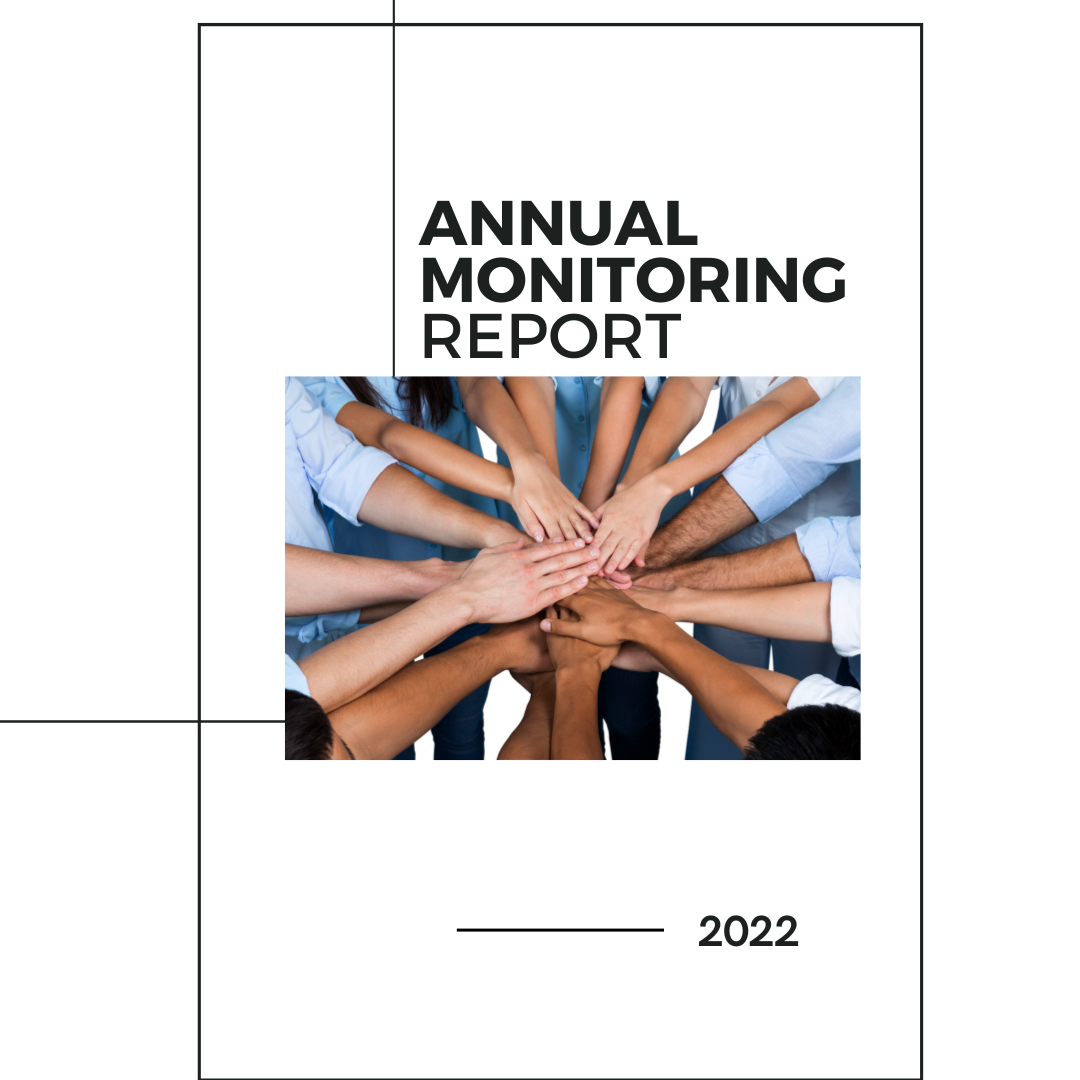
Quality Trust’s Annual Monitoring Report describes work completed by our monitoring and advocacy staff during Fiscal Year (FY) 2022. It addresses the decline in the spread of COVID-19 infections, the passage of landmark legislation changing eligibility requirements for services from the DC Developmental Disabilities Administration (DDA), and the analysis of data from our monitoring and advocacy on behalf of people with disabilities during the year. Other important issues that affected FY 2022 include renewal of DC’s Home & Community Based Services (HCBS) Waiver for People with Intellectual and Developmental Disabilities (IDD Waiver), significant amendments to the HCBS Individual and Family Supports Waiver (IFS Waiver), the effects of continued staffing shortages, and reckoning with a “new normal” for supports and services beyond the disruptions experienced due to COVID-19 beginning in March of 2020.
The COVID-19 pandemic has taken on endemic characteristics. The most serious outcomes – hospitalizations and deaths of both staff and those receiving services – have significantly decreased, and vaccination rates have reached into the 90%+ range for both staff and people with disabilities. In FY 2020, there were 81 deaths; in FY 2021 there were 57; and in FY 2022, 39 deaths were reported. Prior to FY 2020, the average number of deaths annually was approximately 36-38, so the number in FY 2022 year was in keeping with historical averages.
The Developmental Disability Eligibility Reform Amendment Act of 2021 (DDERAA) expands eligibility for DDA services to people with developmental disabilities, not just intellectual disabilities. The DDERAA ensures that people with developmental disabilities who have long-term support needs can access critical community-based services. The DDERAA also modified the definition of an intellectual disability so that it aligns with the current Diagnostic and Statistical Manual of Mental Disorders (DSM, 5th edition). Implementation of the DDERAA began on October 1, 2022, and the impact will unfold slowly as people now eligible apply for services. The new law will not directly impact people currently receiving services or people who have already been found eligible for services. However, as the legislation is being implemented, we will learn whether it brings positive changes to the lives of the approximately 2,300 people already supported by DDA. Other factors such as the availability of specific services needed by people and acute staffing shortages in critical areas are likely to have significant impact on people’s lives and the effectiveness of the service system. The passage of the DDERAA – something almost twenty years in the making – will usher in fundamental changes that will shape services in the decades ahead.
Quality Trust’s monitoring, review of Serious Reportable Incidents (SRIs), follow up on people placed in Long Term Acute Care (LTAC) settings, and general advocacy revealed several promising individual stories of rights enhancing supports and services. We also continued to encounter troubling disconnects involving coordination, communication, and documentation regarding nursing and programmatic services at several providers. These findings have persisted since FY 2020, although less significantly than prior to the onset of the pandemic. We are concerned that as we settle into a new “post-pandemic” normal, we are not seeing improvement in hiring and retaining the kinds of nursing staff needed, especially for people with complex medical and behavioral health support needs.
As we approach the midpoint of FY 2023, the system for providing supports and services to people with intellectual and developmental disabilities (IDD) in DC is being profoundly altered. We hope that:
- the significant advancement realized in the new law
- the potential of greater autonomy resulting from the District’s response to the New Setting Rules issued by CMS in 2014
- and increased use of remote supports and assistive technology
will begin to increase people’s leverage as they negotiate with government and providers to create lives of meaning. Through the collective efforts of people with disabilities, their families, government, providers, and community advocates positive change can be driven by a shared vision for the future. Our hope is that these collective efforts will be carried forward while the never-ending work of changing hearts and minds continues in FY 2023, and beyond.
The final report can be read here.
Jimi Lethbridge, Deputy Director of Programs
